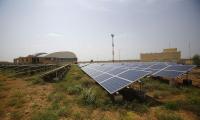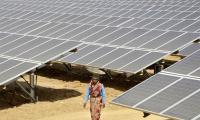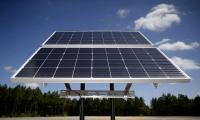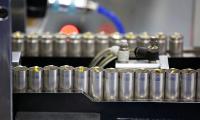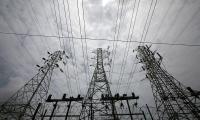Solar Manufacturing Diversification Crucial for Net Zero: R K Singh
Union Minister R K Singh emphasizes the need for diversifying solar manufacturing and supply chains, alongside renewable energy storage, to achieve net zero emission goals. He highlights the challenges of dependence on a single country for solar manufacturing capacity and the importance of...
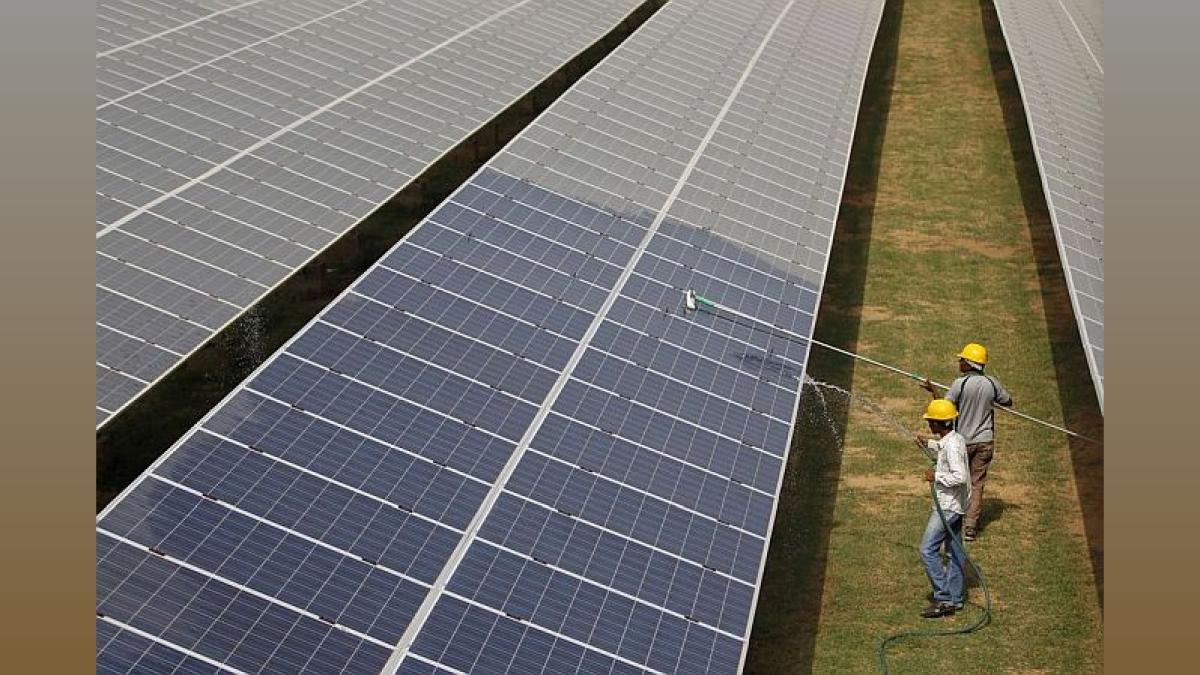
New Delhi, Nov 1 (PTI) Diversification of solar manufacturing and supply chains besides building adequate renewable energy storage are necessary to meet the net zero emission targets, Union Minister R K Singh told ISA member countries on Wednesday.
Without these, the net zero target is going to remain only a goal, Singh, who is the president of the International Solar Alliance (ISA), said.
"Net zero will remain only a goal unless the world gets together to solve the problems of lack of diversification of solar manufacturing capacity and associated supply chains," Union Power and New & Renewable Energy Minister said at a session of the ISA conference.
The ISA president also said that storage remains critical for greater utilisation and round-the-clock provision of renewable energy. The developed world kept talking about the need for energy transition, they did not do anything about it.
"Today, about 90 per cent of the solar manufacturing capacity is in one country, mostly dependent on one chemistry, i.e., lithium ion. This thus raises supply chain challenges, which came to the fore during the COVID-19 pandemic," he said stressing that the round-the-clock renewable energy is not possible without storage.
India has emerged as a country with one of the fastest rates of energy transition, he said.
There is a need to work on improving efficiencies of solar technologies so that the cost of electricity comes down, which would be especially required for developing countries, Singh said.
"We need to increase efficiencies in solar; these need to go up more. When we (India) began our journey, we used to need 5 acres of land for 1 MW solar, today we require 3.5 acres only. The cost of energy has come down but it will differ from country to country. If efficiency goes up, cost of electricity will come down, which will be good for developing countries where many of their people cannot pay for electricity.
"Even in India, we give subsidies to populations who are below a certain income level; this will be true for all developing countries. The financial capability of governments to give subsidy is limited; so increasing efficiency is absolutely important. This will ensure that poorer people can afford electricity without government subsidies," Singh said.
Without these, the net zero target is going to remain only a goal, Singh, who is the president of the International Solar Alliance (ISA), said.
"Net zero will remain only a goal unless the world gets together to solve the problems of lack of diversification of solar manufacturing capacity and associated supply chains," Union Power and New & Renewable Energy Minister said at a session of the ISA conference.
The ISA president also said that storage remains critical for greater utilisation and round-the-clock provision of renewable energy. The developed world kept talking about the need for energy transition, they did not do anything about it.
"Today, about 90 per cent of the solar manufacturing capacity is in one country, mostly dependent on one chemistry, i.e., lithium ion. This thus raises supply chain challenges, which came to the fore during the COVID-19 pandemic," he said stressing that the round-the-clock renewable energy is not possible without storage.
India has emerged as a country with one of the fastest rates of energy transition, he said.
There is a need to work on improving efficiencies of solar technologies so that the cost of electricity comes down, which would be especially required for developing countries, Singh said.
"We need to increase efficiencies in solar; these need to go up more. When we (India) began our journey, we used to need 5 acres of land for 1 MW solar, today we require 3.5 acres only. The cost of energy has come down but it will differ from country to country. If efficiency goes up, cost of electricity will come down, which will be good for developing countries where many of their people cannot pay for electricity.
"Even in India, we give subsidies to populations who are below a certain income level; this will be true for all developing countries. The financial capability of governments to give subsidy is limited; so increasing efficiency is absolutely important. This will ensure that poorer people can afford electricity without government subsidies," Singh said.
You May Like To Read
TODAY'S MOST TRADED COMPANIES
- Company Name
- Price
- Volume
- Vodafone-Idea-L
- 11.65 (+ 3.56)
- 106772451
- Alstone-Textiles
- 0.28 ( -3.45)
- 44187760
- Mangalam-Industrial
- 0.88 ( -2.22)
- 39177573
- Sunshine-Capital
- 0.27 (+ 3.85)
- 35956340
- GMR-Airports
- 104.40 (+ 6.37)
- 30453005
